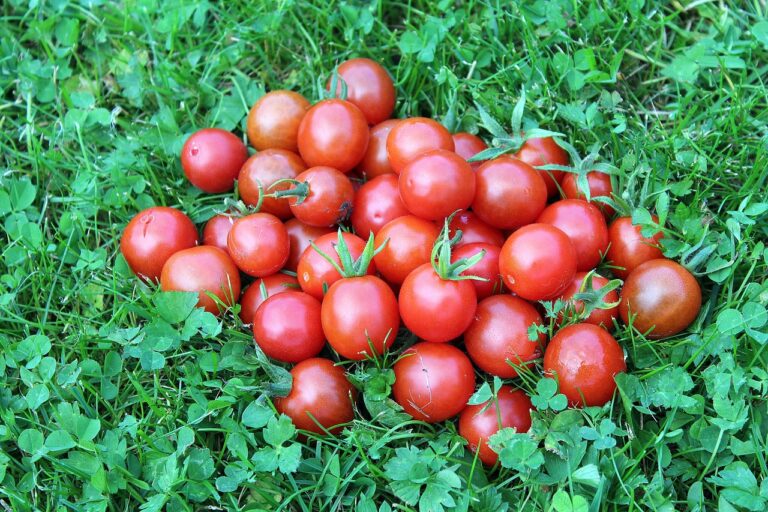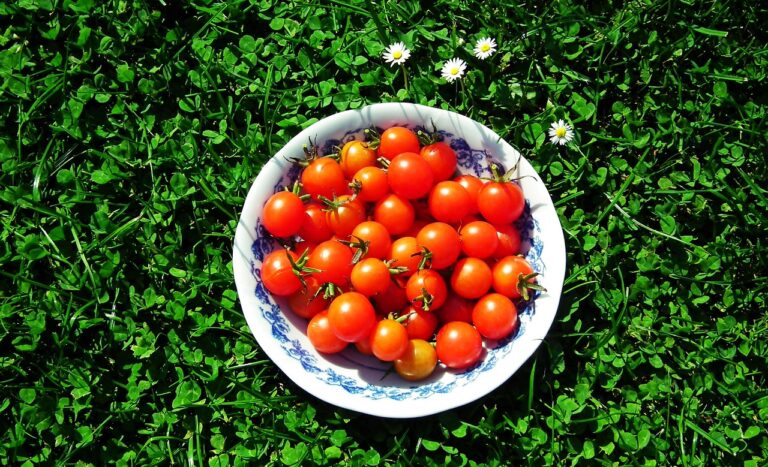Exploring the role of food cooperatives in supporting small-scale fruit growers for pulp and puree production: 11x play online, Reddy bet, Golden777
11x play online, reddy bet, golden777: Food cooperatives play a significant role in supporting small-scale fruit growers for pulp and puree production. These cooperatives act as a bridge between farmers and consumers, helping to create a sustainable and mutually beneficial relationship. In this article, we will explore the various ways in which food cooperatives support small-scale fruit growers and why they are essential for the industry.
The Role of Food Cooperatives
Food cooperatives, also known as co-ops, are member-owned organizations that operate for the benefit of their members. They provide a range of services, including purchasing, processing, marketing, and distribution of food products. Food cooperatives are often focused on supporting local farmers and producers, helping them to reach a wider market and increase their sales.
One of the main roles of food cooperatives is to provide small-scale fruit growers with access to markets that they may not be able to reach on their own. By pooling resources and working together, farmers can sell their products to a larger customer base, increasing their income and supporting their livelihoods. Food cooperatives also help farmers to access resources such as processing facilities, storage, and transportation, which can be expensive for individual growers to invest in.
Supporting Small-Scale Fruit Growers
Food cooperatives play a crucial role in supporting small-scale fruit growers for pulp and puree production. These growers often face challenges in accessing markets and competing with larger producers. Food cooperatives help to level the playing field by providing small-scale growers with access to the same markets and resources as larger producers.
Cooperatives can aggregate the produce of multiple small-scale growers to create a larger, more competitive supply chain. This allows growers to benefit from economies of scale and negotiate better prices for their products. Food cooperatives can also provide technical assistance and training to help growers improve the quality and consistency of their produce, making it more attractive to buyers.
In addition to marketing and distribution support, food cooperatives can also help small-scale fruit growers access financing and insurance services. This can help growers to manage risks such as crop failure or price fluctuations, ensuring a more stable income for their businesses. Cooperatives can also serve as a hub for information sharing and networking among growers, helping them to learn from each other and adopt best practices in pulp and puree production.
Why Food Cooperatives are Essential
Food cooperatives are essential for the growth and sustainability of the pulp and puree production industry. By supporting small-scale fruit growers, cooperatives help to preserve local agricultural diversity and promote sustainable farming practices. They also play a vital role in ensuring food security and promoting economic development in rural communities.
Cooperatives provide a platform for small-scale growers to collectively market their products, giving them a competitive edge in the marketplace. By working together, growers can access larger markets and command better prices for their produce. This not only benefits the growers themselves but also creates economic opportunities for the entire community.
Furthermore, food cooperatives promote transparency and accountability in the supply chain, ensuring that growers are paid fairly for their products. By providing a direct link between farmers and consumers, cooperatives help to build trust and confidence in the quality and authenticity of the products being sold. This can lead to increased consumer demand for locally grown and processed fruit products, supporting the growth of the industry as a whole.
In conclusion, food cooperatives play a vital role in supporting small-scale fruit growers for pulp and puree production. By providing access to markets, resources, and technical assistance, cooperatives help growers to increase their income and improve the quality of their products. Cooperatives are essential for the sustainability and growth of the industry, promoting food security, economic development, and environmental sustainability. By working together, growers and cooperatives can create a more resilient and vibrant food system that benefits everyone involved.
FAQs
Q: How can small-scale fruit growers benefit from joining a food cooperative?
A: Small-scale fruit growers can benefit from joining a food cooperative by gaining access to larger markets, resources such as processing facilities and transportation, technical assistance and training, financing and insurance services, and networking opportunities.
Q: What role do food cooperatives play in promoting sustainable agriculture practices?
A: Food cooperatives promote sustainable agriculture practices by supporting small-scale growers, preserving local agricultural diversity, promoting food security, and ensuring transparency and accountability in the supply chain.
Q: How can consumers support small-scale fruit growers and food cooperatives?
A: Consumers can support small-scale fruit growers and food cooperatives by purchasing locally grown and processed products, advocating for fair wages and working conditions for growers, and promoting transparency and accountability in the food supply chain.







